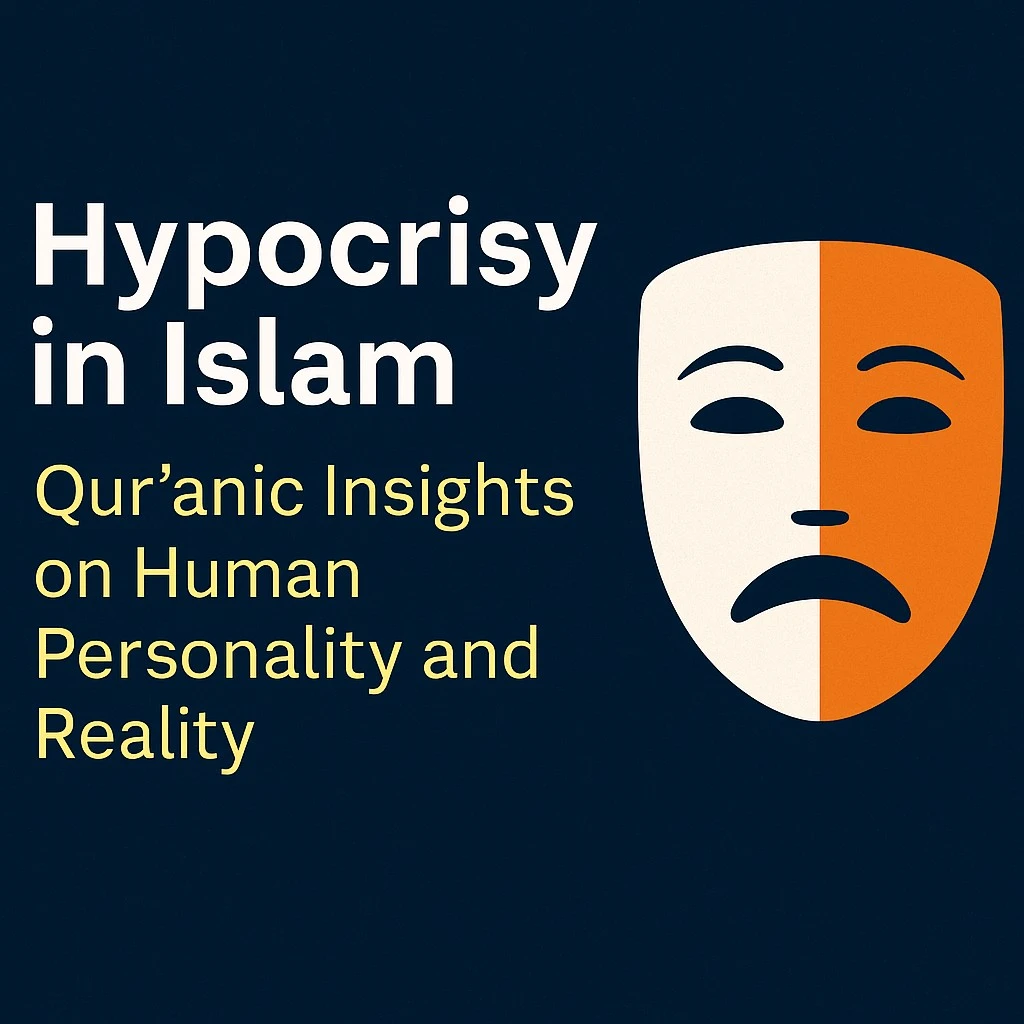Who Are You Really? Qur’an’s Truth on Personality and Hidden Hypocrisy in Islam.

Every human being has certain qualities that define their true identity. Understanding lies, hypocrisy, and human nature is essential. When we fail to understand human truth, life slips away from us. In this article, we will take a calm and subtle look at various human personalities through the teachings of the Qur’an. This understanding can help individuals recognize their internal bitterness and virtues.
Also Read: Fasting in the 1st 10 Days of Dhul Hijjah 2025 – A Golden Opportunity for Muslims Worldwide
The Abstract Model of Human Personality and the Qur’an’s Perspective
Human Temperament and the Meaning of “Shaakilah” in the Qur’an
In the Qur’an, the term “Shaakilah” refers to the nature or disposition of a person. It symbolizes one’s reality, structure, and innate nature. Allah says:
Qur’an 17:84 – “Say, ‘Everyone acts according to their own disposition (Shaakilatihi), but your Lord is most knowing of who is best guided in way.’”
This term is used to highlight both strengths and weaknesses in a person. Human temperament is complex, containing both good and evil. Understanding a person’s “Shaakilah” helps us recognize their true character.
Three Main Types of Human Dispositions and Their Characteristics
- The Average Person: One who has no specific capability, driven by basic instincts. Like animals, they fulfill hunger and thirst but lack a higher goal.
- The Special People: Those who understand reality and walk the path of faith. They have deep insight into truth.
- True Identity: A person’s character depends on their truth, faith, and natural disposition. This identity is what makes a person distinct.
Different Mentors of Humanity and Their Inspirations
The Importance of Morality and Moral Law
Maulana Maududi has spoken extensively on this subject. The Qur’an places great emphasis on morality. Allah teaches the difference between right and wrong:
Qur’an 91:8 – “And inspired it [the soul] with its wickedness and its righteousness.”
Moral law means the ethical rules that keep a person human. These rules plant seeds of truth and honesty in the heart. The teachings of the Prophet (ﷺ) are also based on these moral principles, which form the essence of humanity.
Hadith – Sahih Muslim 15 – “I was sent to perfect good character.”
Human Ideals and Real Purpose
A person’s goal is not just to eat, drink, and rest. The real purpose is to improve oneself and awaken inner goodness.
Qur’an 51:56 – “And I did not create the jinn and mankind except to worship Me.”
The Qur’an advises us to recognize both our strengths and flaws. The journey of life is vast, and we will only find the right path if we understand our purpose.
Four Main Categories of People and Their Lifestyles
The Truthful – Siddiqeen and Their Emotions
Siddiqeen are those whose faith is firm. They believe in truth with their hearts. They consider the Prophet’s voice as the echo of their soul.
Qur’an 4:69 – “Whoever obeys Allah and the Messenger – those will be with the ones upon whom Allah has bestowed favor of the prophets, the steadfast affirmers of truth (Siddiqeen), the martyrs and the righteous.”
Even in difficulties, they remain firm in belief and courage.
Hypocrisy in Islam and Its Various Layers
The Qur’an explains that hypocrisy begins with lies and deceit, and gradually becomes complex. It develops in three stages:
- Telling Lies – Like false oaths or deceptive speech.
- Displaying Fake Faith – Pretending to be honest while lacking sincerity.
- Deep Hypocrisy – Outwardly faithful but inwardly lacking belief.
Qur’an 2:8-9 – “And of the people are some who say, ‘We believe in Allah and the Last Day,’ but they are not believers. They [think to] deceive Allah and those who believe, but they deceive not except themselves and perceive [it] not.”
This hypocrisy hollows a person from within. Initially, lies are hidden. Then fake faith is shown. Eventually, hypocrisy becomes visible.
Cut Off from Beliefs and Greedy for Power
Some people sell their faith for power and status. When personal benefit takes over truth, faith fades. The Qur’an addresses these individuals:
Qur’an 2:86 – “Those are the ones who have bought the life of this world [in exchange] for the Hereafter, so the punishment will not be lightened for them, nor will they be aided.”
Such people no longer hold the true faith that purifies the heart.
Analysis, Repentance, and the Path to Reform
People can realize their mistakes. The Qur’an mentions repentance and seeking forgiveness:
Qur’an 66:8 – “O you who have believed, repent to Allah with sincere repentance. Perhaps your Lord will remove from you your misdeeds.”
If someone regrets their sins and sincerely seeks forgiveness, Allah accepts their repentance. The path to return is always open.
Treatment of Hypocrisy and Means of Human Transformation in the Qur’an
Curing Hypocrisy and Addressing the Munafiqeen
- Self-Reflection – Look within and accept one’s sins.
- Avoiding Display – One doesn’t need to show off righteousness.
- Expulsion from Masjids – In some cases during the Prophet’s time, open hypocrites were not welcomed in communal worship as a caution.
Qur’an 9:107-108 – Regarding the “Masjid al-Dirar” built by hypocrites for harm, the Prophet was told not to stand in it.
Importance of Respect and Truthfulness
The simple way to avoid hypocrisy and lies is to embrace truth. Let truth reside in the heart. Build a bridge of faith and sincerity in behavior. Every chapter of the Qur’an teaches how to live with honesty.
The Process of Human Reform
- Read the Qur’an daily and reflect on its meanings.
- Participate in good deeds with sincerity.
- Honestly assess your inner weaknesses.
- Give charity and help the poor.
- Remain alert and continually work on self-improvement.
Small, consistent steps can lead to significant personal transformation.
Eradicating Hypocrisy and Lies: Actionable Tips
- Recite and ponder over the Qur’an regularly.
- Increase participation in righteous actions.
- Identify your inner pain and weaknesses.
- Cleanse the heart through charity (Sadaqah).
- Continuously examine and improve your behavior.
These simple yet powerful actions can strengthen a person’s inner truth.
Conclusion
Hypocrisy in Islam is a serious moral and spiritual disease. It is harshly condemned in both the Qur’an and Hadith, as it undermines the essence of faith—sincerity, honesty, and righteous character. It silently corrodes one’s soul and disrupts the integrity of a believing society.
Understanding its signs, consequences, and historical examples helps Muslims recognize its dangers and strive for inner purification. True reform begins with self-reflection, sincere repentance, and a deep commitment to live by the authentic teachings of Islam.
This blog explored the reality of human personality and hypocrisy through Qur’anic insights, offering both theoretical understanding and practical steps for transformation. It serves as a reminder and guide to develop truthful, faithful, and sincere living in alignment with the Divine path.


